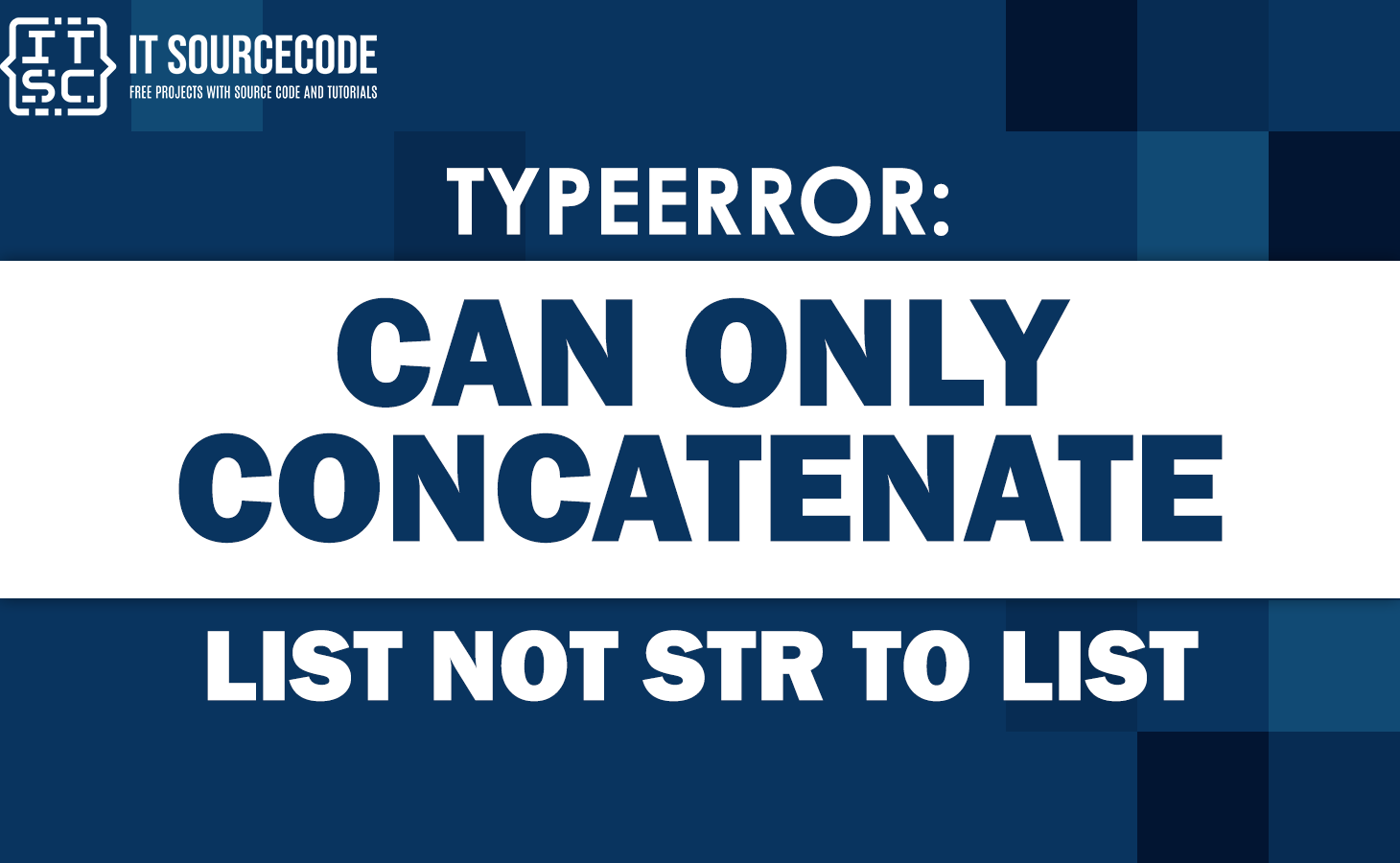Encountering an error message “Typeerror can only concatenate list not str to list” in your Python code when concatenating or joining a string with a list?
And you’re looking for a solution on how to fix it? then this article is for you.
In this article, we will discuss the Typeerror can only concatenate list not str to list, provide its causes and give solutions to resolve this error.
But first, let us know what this error means.
What is Typeerror can only concatenate list not str to list?
The Typeerror can only concatenate list not str to list is an error message in Python that occurs when you try to concatenate a list and a string using the “+” operator.
Which is not allowed in Python.
The error message indicates that the “+” operator can only concatenate objects of the same type (a list with a list, a string with a string)
In this case, you are trying to concatenate a list and a string, which are different types.
Here is an example code that tries to concatenate a list and a string using the “+” operator:
my_list = [1, 2, 3]
my_string = "hello world"
result = my_list + my_stringWhen we run this code we will get an error message indicating:
TypeError: can only concatenate list (not "str") to listbecause the “+” operator cannot concatenate a list and a string.
Now let’s proceed on how to solve this error.
How to solve the “Typeerror can only concatenate list not str to list” error?
There are different ways to fix the “Typeerror can only concatenate list not str to list” error, such as:
1. Use the “extend” method:
The “extend” method is specifically designed to append the elements of one list to another list, regardless of their data types.
So, when you convert the string to a list and then use the “extend” method to append it to the original list, like this:
my_list.extend(list(my_string))You are effectively concatenating the string to the list without triggering a TypeError.
Here is the updated code to the example problem above using the “extend” method:
my_list = [1, 2, 3]
my_string = "hello world"
my_list.extend(list(my_string))
result = my_list
print(result)Output
[1, 2, 3, 'h', 'e', 'l', 'l', 'o', ' ', 'w', 'o', 'r', 'l', 'd']2. Use the append() method:
The other way to solve “Typeerror can only concatenate list not str to list” is to use append() method.
The “append()” method is used to add a single element to the end of a list.
If you try to use it to add a string to a list, it will simply add the string as a single element to the list.
Here is the updated code using the append() method:
my_list = [1, 2, 3]
my_string = "hello world"
my_list.append(my_string)
result = my_list
print(result)Output
[1, 2, 3, 'hello world']3. Convert a string to a list of characters by using the “list()” function:
The “list()” function converts a string to a list of characters, with each character being an individual element in the list.
Here is the updated code using the “list()” function:
my_list = [1, 2, 3]
my_string = "hello world"
result = my_list + list(my_string)
print(result)Output
[1, 2, 3, 'h', 'e', 'l', 'l', 'o', ' ', 'w', 'o', 'r', 'l', 'd']4. Wrapping the string in a list and use the addition operator:
Wrapping the string in a list using square brackets will create a new list with the string as its only element.
When you use the “+” operator to concatenate this list with another list, you will get a new list containing the elements of both lists.
For example:
my_list = [1, 2, 3]
my_string = "hello world"
result = my_list + [my_string]
print(result)Output
[1, 2, 3, 'hello world']5. Use the “remove()” method:
The “remove()” method is used to remove a specific element from a list by specifying its value.
For example
my_list = ["John", "Paul", "Allan"]
my_string = "Paul"
my_list.remove(my_string)
print(my_list)Output
['John', 'Allan']6. Use the formatted-string literal:
A formatted-string literal allows you to include variables or expressions inside a string by using placeholders.
It is denoted by curly braces, that are replaced with the values of the variables or expressions at runtime.
For example:
my_list = ["John", "Paul", "Allan"]
my_string = "are Lee brothers"
result = f'{my_list} {my_string}'
print(result)Output
['John', 'Paul', 'Allan'] are Lee brothersSo those are the alternative solutions that you can use to fix the “Typeerror can only concatenate list not str to list”.
I hope it helps you fix your problem regarding the error.
Here are the other fixed Python errors that you can visit, you might encounter them in the future.
- typeerror unsupported operand type s for str and int
- typeerror: object of type int64 is not json serializable
- typeerror: bad operand type for unary -: str
Conclusion
In conclusion, The Typeerror can only concatenate list not str to list occurs when you try to concatenate a list and a string using the “+” operator.
The error message indicates that the “+” operator can only concatenate objects of the same type (a list with a list, a string with a string).
By following the given solution, surely you can fix the error quickly and proceed to your coding project again.
I hope this article helps you to solve your problem regarding a Typeerror stating “can only concatenate list not str to list”.
We’re happy to help you.
Happy coding! Have a Good day and God bless.

